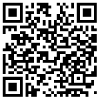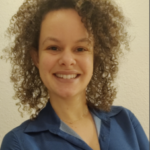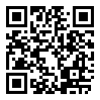
Lehrgebiet: Theoretische Informatik und künstliche Intelligenz
Büro: 01.214
Labor: 04.105
Telefon: +49 208 88254-806
E-Mail:
🛜 http://lab.iossifidis.net

Ioannis Iossifidis studierte Physik (Schwerpunkt: theoretische Teilchenphysik) an der Universität Dortmund und promovierte 2006 an der Fakultät für Physik und Astronomie der Ruhr-Universität Bochum.
Am Institut für Neuroinformatik leitete Prof. Dr. Iossifidis die Arbeitsgruppe Autonome Robotik und nahm mit seiner Forschungsgruppe erfolgreich an zahlreichen, vom BmBF und der EU, geförderten Forschungsprojekten aus dem Bereich der künstlichen Intelligenz teil. Seit dem 1. Oktober 2010 arbeitet er an der HRW am Institut Informatik und hält den Lehrstuhl für Theoretische Informatik – Künstliche Intelligenz.
Prof. Dr. Ioannis Iossifidis entwickelt seit über 20 Jahren biologisch inspirierte anthropomorphe, autonome Robotersysteme, die zugleich Teil und Ergebnis seiner Forschung im Bereich der rechnergestützten Neurowissenschaften sind. In diesem Rahmen entwickelte er Modelle zur Informationsverarbeitung im menschlichen Gehirn und wendete diese auf technische Systeme an.
Ausgewiesene Schwerpunkte seiner wissenschaftlichen Arbeit der letzten Jahre sind die Modellierung menschlicher Armbewegungen, der Entwurf von sogenannten «Simulierten Realitäten» zur Simulation und Evaluation der Interaktionen zwischen Mensch, Maschine und Umwelt sowie die Entwicklung von kortikalen exoprothetischen Komponenten. Entwicklung der Theorie und Anwendung von Algorithmen des maschinellen Lernens auf Basis tiefer neuronaler Architekturen bilden das Querschnittsthema seiner Forschung.
Ioannis Iossifidis’ Forschung wurde u.a. mit Fördermitteln im Rahmen großer Förderprojekte des BmBF (NEUROS, MORPHA, LOKI, DESIRE, Bernstein Fokus: Neuronale Grundlagen des Lernens etc.), der DFG («Motor‐parietal cortical neuroprosthesis with somatosensory feedback for restoring hand and arm functions in tetraplegic patients») und der EU (Neural Dynamics – EU (STREP), EUCogII, EUCogIII ) honoriert und gehört zu den Gewinnern der Leitmarktwettbewerbe Gesundheit.NRW und IKT.NRW 2019.
ARBEITS- UND FORSCHUNGSSCHWERPUNKTE
- Computational Neuroscience
- Brain Computer Interfaces
- Entwicklung kortikaler exoprothetischer Komponenten
- Theorie neuronaler Netze
- Modellierung menschlicher Armbewegungen
- Simulierte Realität
WISSENSCHAFTLICHE EINRICHTUNGEN
- Labor mit Verlinkung
- ???
- ???
LEHRVERANSTALTUNGEN
- ???
- ???
- ???
PROJEKTE
- Projekt mit Verlinkung
- ???
- ???
WISSENSCHAFTLICHE MITARBEITER*INNEN

Felix Grün
Büro: 02.216 (Campus Bottrop)

Marie Schmidt
Büro: 02.216 (Campus Bottrop)

Aline Xavier Fidencio
Gastwissenschaftlerin

Muhammad Ayaz Hussain
Doktorand

Tim Sziburis
Doktorand

Farhad Rahmat
studentische Hilfskraft
GOOGLE SCHOLAR PROFIL

Artikel
Schöner, Gregor; Iossifidis, Ioannis
Auf gute Zusammenarbeit Artikel
In: Gerhirn und Geist, Spektrum der Wissenschaft, Bd. 3, 2008.
BibTeX | Schlagwörter: anthropomorphic arm, attractor dynamics approach, autonomous obstacle avoidance, collision avoidance, dynamical systems approach, manipulator dynamics, primate central nervous system, redundant manipulators, redundant robot arm, telerobotics
@article{Schoener2008,
title = {Auf gute Zusammenarbeit},
author = {Gregor Schöner and Ioannis Iossifidis},
year = {2008},
date = {2008-01-01},
journal = {Gerhirn und Geist, Spektrum der Wissenschaft},
volume = {3},
keywords = {anthropomorphic arm, attractor dynamics approach, autonomous obstacle avoidance, collision avoidance, dynamical systems approach, manipulator dynamics, primate central nervous system, redundant manipulators, redundant robot arm, telerobotics},
pubstate = {published},
tppubtype = {article}
}
Proceedings Articles
Reimann, H; Iossifidis, Ioannis; Schöner, G
Generating collision free reaching movements for redundant manipulators using dynamical systems Proceedings Article
In: 2010 IEEE/RSJ International Conference on Intelligent Robots and Systems, S. 5372–5379, IEEE, 2010, ISBN: 978-1-4244-6674-0.
Abstract | Links | BibTeX | Schlagwörter: anthropomorphic arm, attractor dynamics approach, autonomous obstacle avoidance, central nervous system, collision avoidance, Dynamical systems, manipulator dynamics, redundant manipulators, redundant robot arm
@inproceedings{Reimann2010b,
title = {Generating collision free reaching movements for redundant manipulators using dynamical systems},
author = {H Reimann and Ioannis Iossifidis and G Schöner},
url = {http://ieeexplore.ieee.org/xpl/freeabs_all.jsp?arnumber=5650603},
doi = {10.1109/IROS.2010.5650603},
isbn = {978-1-4244-6674-0},
year = {2010},
date = {2010-10-01},
urldate = {2010-10-01},
booktitle = {2010 IEEE/RSJ International Conference on Intelligent Robots and Systems},
pages = {5372--5379},
publisher = {IEEE},
abstract = {For autonomous robots to manipulate objects in unknown environments, they must be able to move their arms without colliding with nearby objects, other agents or humans. The simultaneous avoidance of multiple obstacles in real time by all link segments of a manipulator is still a hard task both in practice and in theory. We present a systematic scheme for the generation of collision free movements for redundant manipulators in scenes with arbitrarily many obstacles. Based on the dynamical systems approach to robotics, constraints are formulated as contributions to a dynamical system that erect attractors for targets and repellors for obstacles. These contributions are formulated in terms of variables relevant to each constraint and then transformed into vector fields over the manipulator joint velocity vector as an embedding space in which all constraints are simultaneously observed. We demonstrate the feasibility of the approach by implementing it on a real anthropomorphic 8-degrees-of-freedom redundant manipulator. In addition, performance is characterized by detecting failures in a systematic simulation experiment in randomized scenes with varying numbers of obstacles.},
keywords = {anthropomorphic arm, attractor dynamics approach, autonomous obstacle avoidance, central nervous system, collision avoidance, Dynamical systems, manipulator dynamics, redundant manipulators, redundant robot arm},
pubstate = {published},
tppubtype = {inproceedings}
}
Iossifidis, Ioannis; Schöner, Gregor
Reaching while avoiding obstacles: a neuronally inspired attractor dynamics approach Proceedings Article
In: Bernstein Conference on Computational Neuroscience (BCCN 2009), 2009.
Links | BibTeX | Schlagwörter: anthropomorphic arm, central nervous system, collision avoidance, Dynamical systems, manipulator dynamics, obstacle avoidance, redundant manipulators, redundant robot arm
@inproceedings{Iossifidis2009,
title = {Reaching while avoiding obstacles: a neuronally inspired attractor dynamics approach},
author = {Ioannis Iossifidis and Gregor Schöner},
doi = {10.3389/conf.neuro.10.2009.14.007},
year = {2009},
date = {2009-01-01},
booktitle = {Bernstein Conference on Computational Neuroscience (BCCN 2009)},
keywords = {anthropomorphic arm, central nervous system, collision avoidance, Dynamical systems, manipulator dynamics, obstacle avoidance, redundant manipulators, redundant robot arm},
pubstate = {published},
tppubtype = {inproceedings}
}
Iossifidis, Ioannis; Schöner, Gregor; Schoner, Gregor
Dynamical Systems Approach for the Autonomous Avoidance of Obstacles and Joint-limits for an Redundant Robot Arm Proceedings Article
In: 2006 IEEE/RSJ International Conference on Intelligent Robots and Systems, S. 580–585, IEEE, 2006, ISBN: 1-4244-0258-1.
Abstract | Links | BibTeX | Schlagwörter: anthropomorphic arm, attractor dynamics approach, autonomous obstacle avoidance, collision avoidance, dynamical systems approach, manipulator dynamics, primate central nervous system, redundant manipulators, redundant robot arm, telerobotics
@inproceedings{Iossifidis2006a,
title = {Dynamical Systems Approach for the Autonomous Avoidance of Obstacles and Joint-limits for an Redundant Robot Arm},
author = {Ioannis Iossifidis and Gregor Schöner and Gregor Schoner},
doi = {10.1109/IROS.2006.282468},
isbn = {1-4244-0258-1},
year = {2006},
date = {2006-10-01},
booktitle = {2006 IEEE/RSJ International Conference on Intelligent Robots and Systems},
pages = {580--585},
publisher = {IEEE},
abstract = {We extend the attractor dynamics approach to generate goal-directed movement of a redundant, anthropomorphic arm while avoiding dynamic obstacles and respecting joint limits. To make the robot's movements human-like, we generate approximately straight-line trajectories by using two heading direction angles of the tool-point quite analogously to how movement is represented in the primate central nervous system. Two additional angles control the tool's spatial orientation so that it follows the tool-point's collision-free path. A fifth equation governs the redundancy angle, which controls the elevation of the elbow so as to avoid obstacles and respect joint limits. These variables make it possible to generate movement while sitting in an attractor (or, in the language of the potential field approach, in a minimum). We demonstrate the approach on an assistant robot, which interacts with human users in a shared workspace},
keywords = {anthropomorphic arm, attractor dynamics approach, autonomous obstacle avoidance, collision avoidance, dynamical systems approach, manipulator dynamics, primate central nervous system, redundant manipulators, redundant robot arm, telerobotics},
pubstate = {published},
tppubtype = {inproceedings}
}
Iossifidis, Ioannis; Schöner, Gregor
Attractor dynamics approach for autonomous collision-free path generation in 3d-space for an 7 dof robot arm Proceedings Article
In: Proceedings of the ROBOTIK 2004, Leistungsstand - Anwendungen - Visionen - Trends, number 1841 in VDI-Berichte, S. 815–822, VDI/VDE VDI Verlag, München, Germany, 2004.
BibTeX | Schlagwörter: arm movement model, collision avoidance, Dynamical systems, inverse kinematics, movement model, Robotics
@inproceedings{Iossifidis2004a,
title = {Attractor dynamics approach for autonomous collision-free path generation in 3d-space for an 7 dof robot arm},
author = {Ioannis Iossifidis and Gregor Schöner},
year = {2004},
date = {2004-01-01},
booktitle = {Proceedings of the ROBOTIK 2004, Leistungsstand - Anwendungen - Visionen - Trends, number 1841 in VDI-Berichte},
pages = {815--822},
publisher = {VDI Verlag},
address = {München, Germany},
organization = {VDI/VDE},
keywords = {arm movement model, collision avoidance, Dynamical systems, inverse kinematics, movement model, Robotics},
pubstate = {published},
tppubtype = {inproceedings}
}
Iossifidis, Ioannis; Schöner, Gregor; Schoner, Gregor
Autonomous reaching and obstacle avoidance with the anthropomorphic arm of a robotic assistant using the attractor dynamics approach Proceedings Article
In: Proc. IEEE International Conference on Robotics and Automation ICRA '04, S. 4295––4300 Vol.5, 2004, ISSN: 1050-4729.
Abstract | Links | BibTeX | Schlagwörter: anthropomorphic arm, attractor dynamics, autonomous reaching, collision avoidance, end effector shift, end effectors, man machine interaction, manipulator dynamics, obstacle avoidance, robotic assistant, time varying environment, time-varying systems
@inproceedings{Iossifidis2004b,
title = {Autonomous reaching and obstacle avoidance with the anthropomorphic arm of a robotic assistant using the attractor dynamics approach},
author = {Ioannis Iossifidis and Gregor Schöner and Gregor Schoner},
doi = {10.1109/ROBOT.2004.1302393},
issn = {1050-4729},
year = {2004},
date = {2004-01-01},
booktitle = {Proc. IEEE International Conference on Robotics and Automation ICRA '04},
volume = {5},
pages = {4295----4300 Vol.5},
abstract = {To enable a robotic assistant to autonomously reach for and transport objects while avoiding obstacles we have generalized the attractor dynamics approach established for vehicles to trajectory formation in robot arms. This approach is able to deal with the time-varying environments that occur when a human operator moves in a shared workspace. Stable fixed points (attractors) for the heading direction of the end-effector shift during movement and are being tracked by the system. This enables the attractor dynamics approach to avoid the spurious states that hamper potential field methods. Separating planning and control computationally, the approach is also simpler to implement. The stability properties of the movement plan make it possible to deal with fluctuating and imprecise sensory information. We implement this approach on a seven degree of freedom anthropomorphic arm reaching for objects on a working surface. We use an exact solution of the inverse kinematics, which enables us to steer the spatial position of the elbow clear of obstacles. The straight-line trajectories of the end-effector that emerge as long as the arm is far from obstacles make the movement goals of the robotic assistant predictable for the human operator, improving man-machine interaction.},
keywords = {anthropomorphic arm, attractor dynamics, autonomous reaching, collision avoidance, end effector shift, end effectors, man machine interaction, manipulator dynamics, obstacle avoidance, robotic assistant, time varying environment, time-varying systems},
pubstate = {published},
tppubtype = {inproceedings}
}
